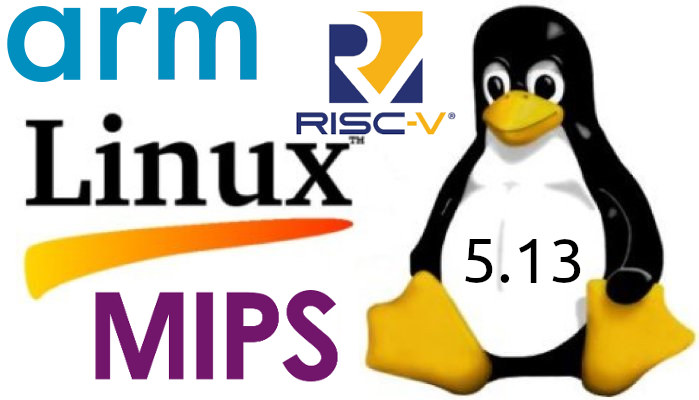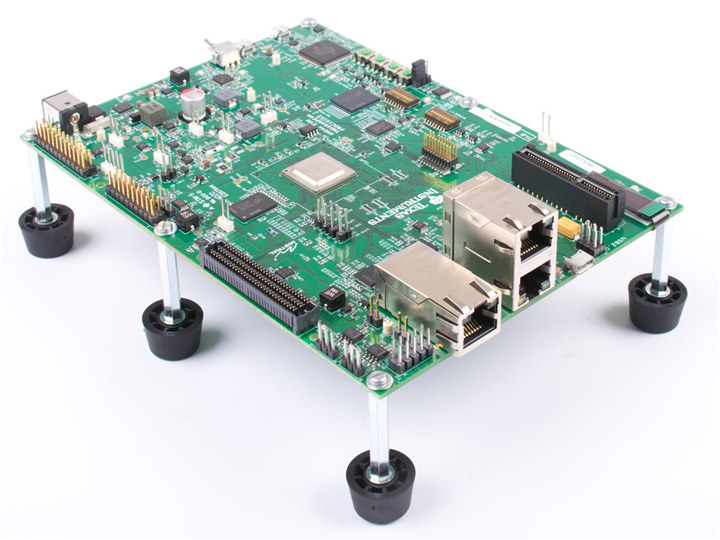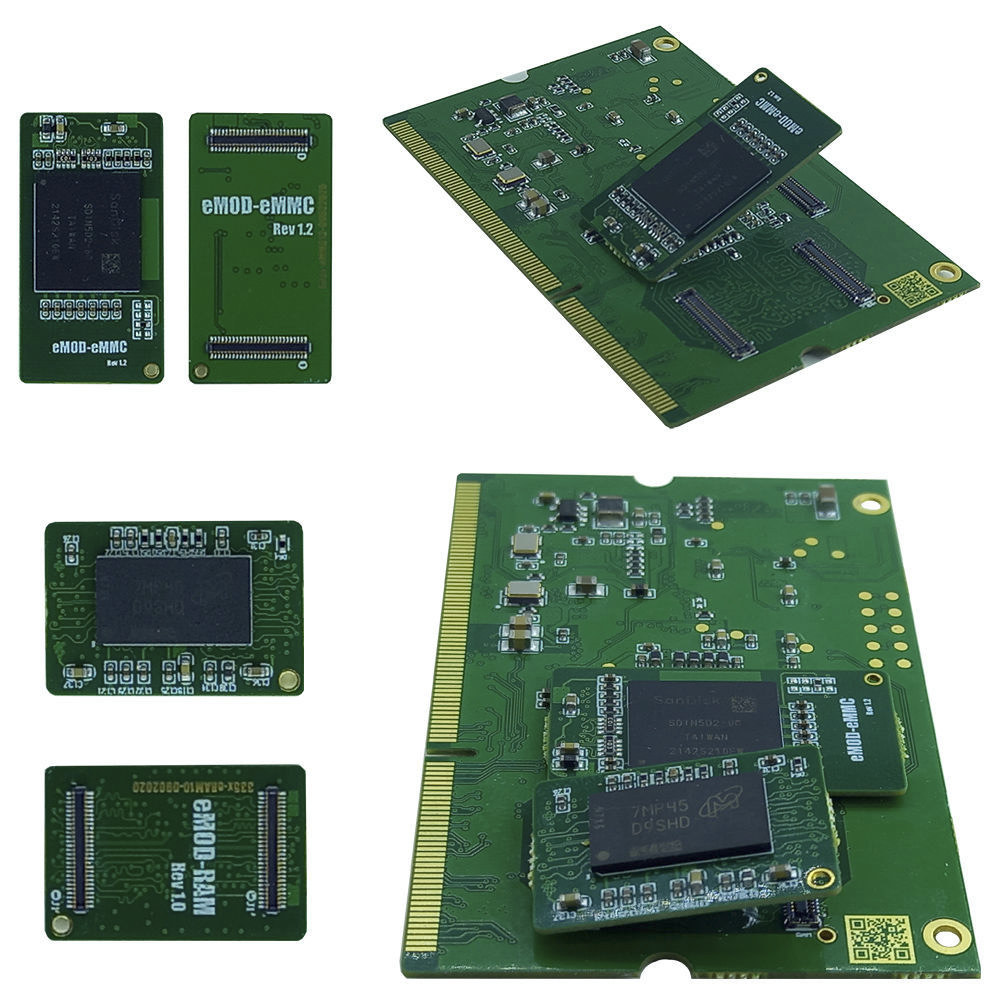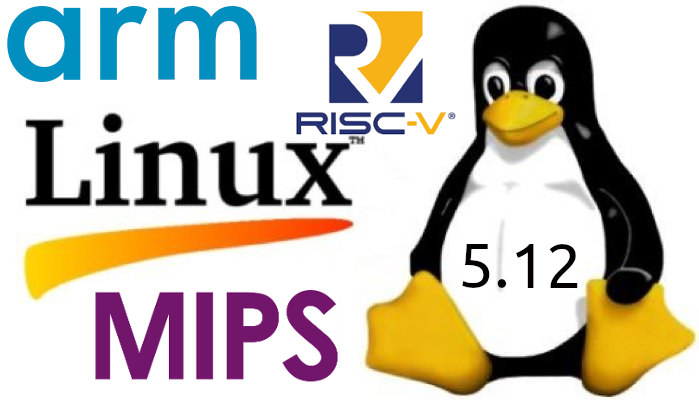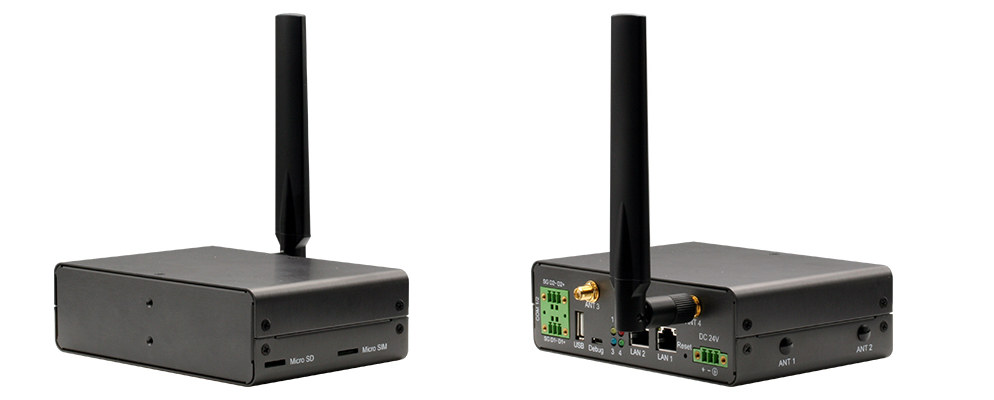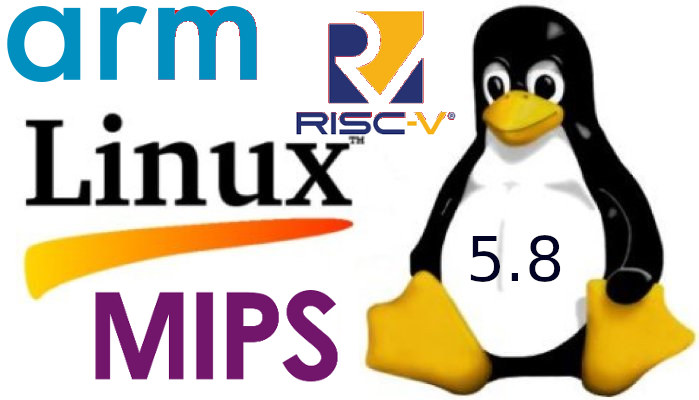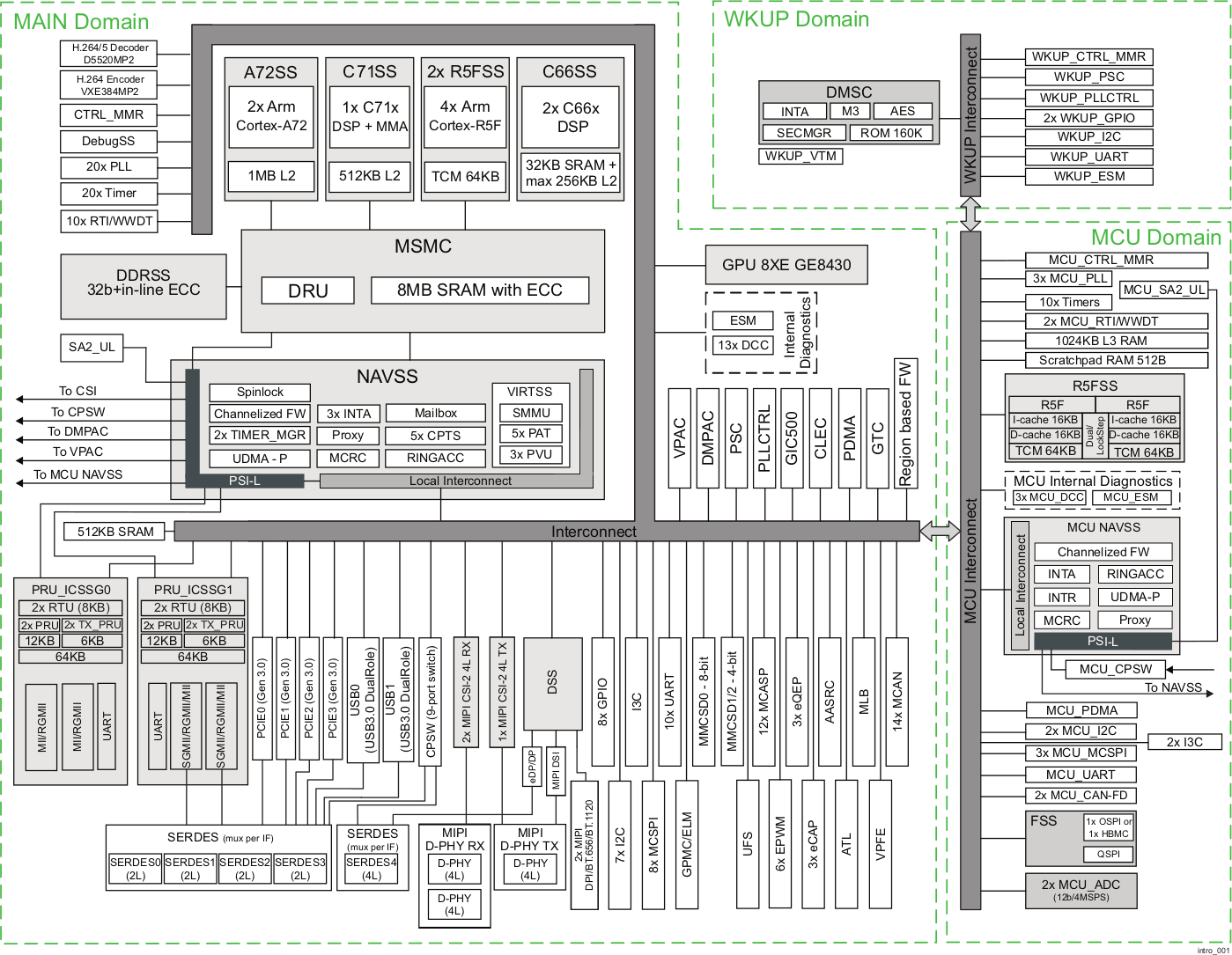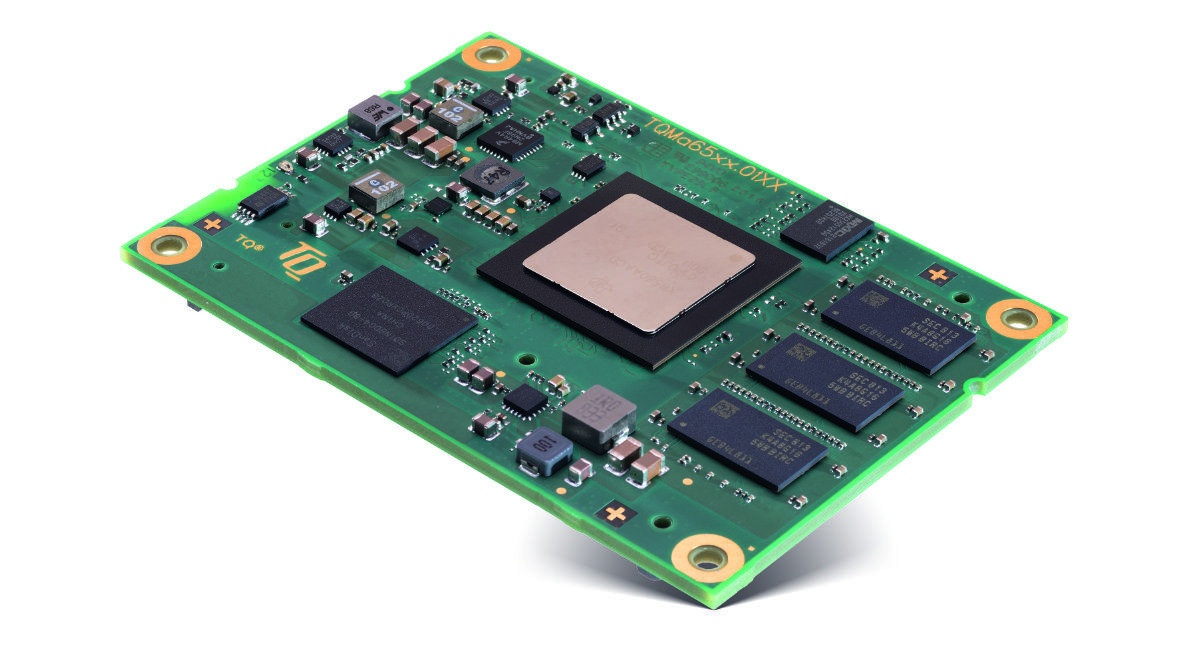Linus Torvalds has just announced the release of Linux 5.13: So we had quite the calm week since rc7, and I see no reason to delay 5.13. The shortlog for the week is tiny, with just 88 non-merge commits (and a few of those are just reverts). It’s a fairly random mix of fixes, and being so small I’d just suggest people scan the appended shortlog for what happened. Of course, if the last week was small and calm, 5.13 overall is actually fairly large. In fact, it’s one of the bigger 5.x releases, with over 16k commits (over 17k if you count merges), from over 2k developers. But it’s a “big all over” kind of thing, not something particular that stands out as particularly unusual. Some of the extra size might just be because 5.12 had that extra rc week. And with 5.13 out the door, that obviously means […]
TI AM64x 7-core processor is made for PLC’s, motor drives, industrial robots
Texas Instruments AM64x is a family of 64-bit Arm processors with functional safety designed for Programmable Logic Controllers (PLC), motor drives, remote I/O, and industrial robots. The top-end processor of the family, AM6442, comes with seven cores including two Cortex-A53 application cores, four Cortex-R5F real-time cores, and one Cortex-M4F isolated core. AFAICT, while the documentation is dated January 2021 and TI announced the processor in February in a blog post with a cryptic title, it was only first picked up by Embedded Computing in early May. Besides the processor itself, TI also provides an AM64x starter kit and a full-featured AM64x evaluation kit, and several companies are already preparing development boards and modules as we’ll see further below. TI AM64x processor AM64x key features & specifications: CPU cores Dual-core Arm Cortex-A53 processor @ 1.0 GHz with 256KB L2 shared cache with SECDED ECC, 32KB L1 D-cache, 32KB L1 I-cache Up […]
Arm/Intel Windows systems-on-module come with modular eMMC or/and RAM modules
It’s been a long time since I’ve written about a Windows CE (WinCE) compatible module, but apparently, those are still being developed with China-based UNERON offering eSOM335x Windows CE system-on-module based on Texas Instruments AM335x Arm Cortex-A8 processor, and eSOM3735z Windows 10 module equipped with an Intel Atom Z3735G processor. What’s even more intriguing is that the company relies on replaceable & upgradable eMMC flash and RAM modules for the Arm SoM, and while the 1GB RAM is soldered on the Intel module, it’s still possible to upgrade the eMMC flash that way. We’ve seen eMMC modules on several single board computers in the past including ODROID-C4 or Renegade SBC, but I think it’s the first time I see this option on a system-on-module. UNERON eSOM335x AM335x system-on-module Specifications: SoC – Texas Instrumentx Sitara AM3358BZCZA100 Arm Cortex-A8 up to 1GHz with PowerVR SGX530 3D GPU (optional AM3359, AM3354, or AM3352) […]
Linux 5.12 – Main Changes, Arm, MIPS and RISC-V Architectures
Linux 5.12 release was expected last Sunday, but Linus Torvalds decided to release one more release candidate, namely Linux 5.12-RC8, to “make sure things are all settled down“, so the latest Linux kernel is now expected this weekend. Tihs should not yield any significant changes, so we can check what’s new in Linux 5.12, notably with regards to Arm, MIPS, and RISC-V architectures often used in SoC’s found in embedded systems. Around two months ago, the release of Linux 5.11 added support for Intel’s software guard extensions (SGX) and Platform Monitoring Technology (PMT), AMD “Van Gogh” and “Dimgrey cavefish” graphics processors, MIPI I3C host controller interfaces, and much more. Some interesting changes in Linux 5.12 include: Added support for ACRN hypervisor designed for IoT & embedded devices Added support for Playstation DualSense & Nintendo 64 game controllers, as well as Nintendo 64 data cartridges Dynamic thermal power management via a […]
Edge IoT Gateway Powers Networks in Smart Factories, Smart Cities
In case you wonder if Arm Cortex-A8 processors are still getting used in new products, you’ll be glad to learn AAEON has just launched SRG-3352 Edge IoT Gateway based on an unnamed Arm Cortex-A8 processor @ 800 MHz and designed to power networks for Smart Factories, Smart Cities, and more. AAEON SRG-3352 specifications: SoC – Unnamed Arm Cortex-A8 800 MHz RISC processor, possibly Texas Instrument Sitara AM335x processor System Memory – 1GB DDR3L Storage – 8GB eMMC flash, MicroSD slot Connectivity 2x Gigabit Ethernet (RJ45) Optional 802.11b/g/n/ac WiFi 5 and Bluetooth 4.2 via USB port Optional NB-IoT or 3G/4G LTE via mini PCIe card; SIM card socket Serial Ports – 2x RS-485 interface via Phoenix terminal blocks or D-Sub connectors USB – 1x USB 2.0 port, 1x Micro USB 2.0 port Misc – RTC with CR2032 Lithium battery, 4 user LEDs, Reset button, optional VGA output Power Supply – 9-30V […]
Linux 5.8 Release – Main Changes, Arm, MIPS, and RISC-V Architectures
Linus Torvalds has just released Linux 5.8: So I considered making an rc8 all the way to the last minute, but decided it’s not just worth waiting another week when there aren’t any big looming worries around. Because despite the merge window having been very large, there really hasn’t been anything scary going on in the release candidates. Yeah, we had some annoying noise with header file dependencies this week, but that’s not a new annoyance, and it’s also not the kind of subtle bug that keeps me up at night worrying about it. It did reinforce how nice it would be if we had some kind of tooling support to break nasty header file dependencies automatically, but if wishes were horses.. Maybe some day we’ll have some kind of SAT-solver for symbol dependencies that can handle all our different architectures and configurations, but right now it’s just a manual […]
J721E DRA829/TDA4VM/AM752x – Texas Instruments Cortex-A72 based Monster SoC’s
Texas Instruments unveiled their first 64-bit processor in 2018 with TI AM654 “Keystone III” quad-core Arm Cortex-A53 + dual lockstep Cortex-R5F processor designed for general embedded and industrial applications. The company is now working on a more powerful processor with J721E SoC with Cortex-A72 cores belonging to the K3 Multicore SoC architecture platform appearing in TI Linux git repository. Ti J721E is a monster of an SoC, not necessarily in terms of CPU processing power, but it has an amazing amount of features and peripherals. I’m not going to list all specifications of this monster SoC, and we’ll do with J721E highlights instead: CPU Dual Cortex-A72 up to 2.0 GHz in a single cluster Up to three clusters of lockstep capable dual Cortex-R5F MCUs @ 1.0 GHz AI Accelerator / DSP Deep-learning Matrix Multiply Accelerator (MMA) @ up to 1.0 GHz (8 TOPS for 8-bit inference) C7x floating-point Vector DSP […]
TQMa65xx Embedded Module Features TI Sitara AM65xx SoC, Six TSN Ethernet Interfaces
Texas Instruments Sitara AM654 Cortex-A53/R5 SoC was launched in 2018 as the first 64-bit processor from the company and specifically targetting Gigabit industrial Ethernet networks with support for Time-Sensitive Networking (TSN). Since the processor launch, we’ve seen a couple of Sitara AM65xx modules such as PHYTEC phyCORE-AM65x SoM and Mistral AM65x Industrial SOM. There’s now another option with TQ Embedded TQMa65xx embedded module featuring a choice of 5 AM65xx dual-/quad-core processor, up to 4GB RAM, up to 64GB eMMC flash, and various I/Os via a 560-pin connector that includes six Gigabit TSN Ethernet interfaces. TQ Embedded TQMa65xx embedded module specifications: SoC – Texas Instruments Sitara AM6526, AM6527, AM6528, AM6546, or AM6548 with dual-core or quad-core Cortex-A53 processor @ 1.1 GHz, dual Cortex-R5 dual-lockstep processor @ 400 MHz, optional Imagination SGX544 GPU (AM6xx8 SKU) System Memory – Up to 4GB DDR4 SDRAM with optional ECC Storage – Up to 64GB eMMC […]


